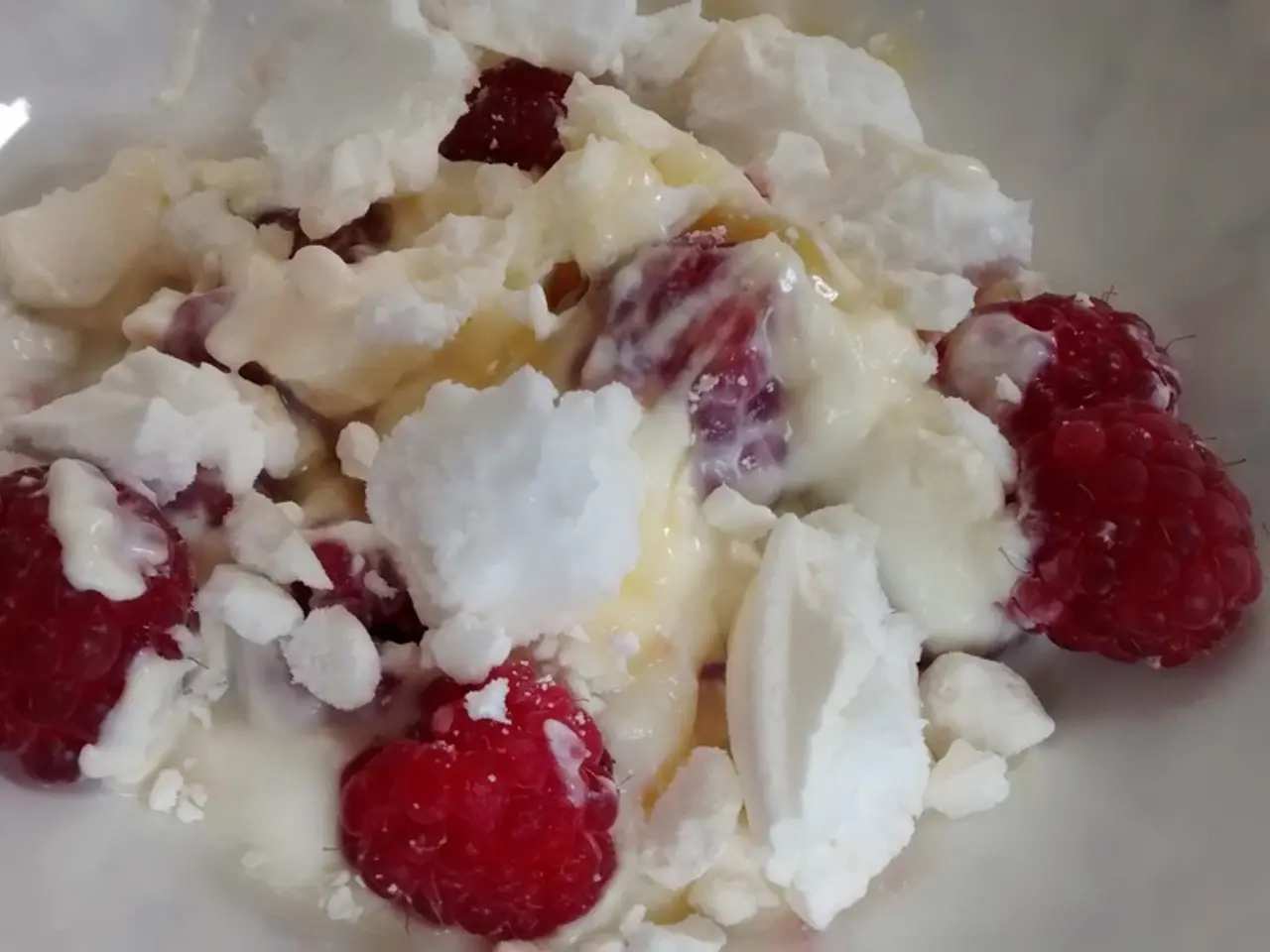Struggling with Aching Muscles? Check Out These 11 Foods to Heal and Bounce Back Quickly
In the world of fitness, muscle soreness is an inevitable part of pushing your body to its limits. However, there are certain foods that can help reduce inflammation, support muscle repair, and alleviate post-exercise soreness. Here's a look at some key foods and why they are beneficial for a speedy recovery.
Fatty fish, such as salmon, sardines, and mackerel, are rich in high-quality protein and omega-3 fatty acids, which have anti-inflammatory properties shown to reduce muscle pain after exercise-induced muscle damage. Pumpkin seeds, on the other hand, are packed with magnesium, an essential mineral for muscle relaxation and reducing soreness. A study has shown that increased magnesium intake significantly reduced muscle soreness and improved recovery after resistance training.
Bananas and banana peel tea are also great sources of magnesium, potassium, and calcium, minerals that help ease muscle cramps and support muscle function. Tart cherry juice, known for its anti-inflammatory properties, contains anthocyanins that reduce muscle stiffness and pain, improving recovery and possibly sports performance.
Protein-rich foods, such as Greek yogurt, are vital for muscle repair and recovery post-exercise. Greek yogurt also contains probiotics that can improve gut health, which has been linked to reduced inflammation throughout the body. Walnuts, rich in omega-3 fatty acids and antioxidants, help combat inflammation after intense physical activity, reducing muscle soreness and supporting muscle repair.
Ginger, cherries, and watermelon are also foods that can help prevent muscle cramps. Ginger contains bioactive compounds such as gingerol that inhibit molecules responsible for causing pain and swelling in muscles, helping to alleviate delayed onset muscle soreness (DOMS). Cherries contain antioxidants called anthocyanins that reduce inflammation and muscle damage following intense physical activity, speeding up recovery and lessening soreness. Watermelon's high water content helps maintain hydration, a key factor in muscle function and recovery.
Moreover, watermelon contains the amino acid L-citrulline, which helps reduce muscle soreness by supporting the removal of waste products produced during exercise and promoting improved blood flow. Beetroot enhances blood flow and oxygen delivery to muscles, reducing fatigue and soreness after exercise, and contains antioxidants that protect muscle cells from oxidative damage, accelerating recovery and lessening the intensity of muscle soreness experienced after workouts.
In summary, consuming foods rich in omega-3s, magnesium, antioxidants, and protein helps reduce inflammation, repair muscle tissue, and alleviate post-exercise soreness. Eating habits can make a big difference in how you bounce back from workouts, with simple changes in what you eat helping to reduce muscle discomfort and support recovery. Consuming Greek yogurt, ginger, cherries, and watermelon after physical activity can help replenish nutrients, reduce soreness, and enhance the body's ability to recover from muscle stress.
Science shows that consuming fatty fish, such as salmon, sardines, and mackerel, rich in omega-3 fatty acids, helps reduce muscle pain after exercise-induced muscle damage, supporting recovery. Pumpkin seeds, high in magnesium, an essential mineral for muscle relaxation, are beneficial for alleviating post-exercise soreness and improving recovery after resistance training.




